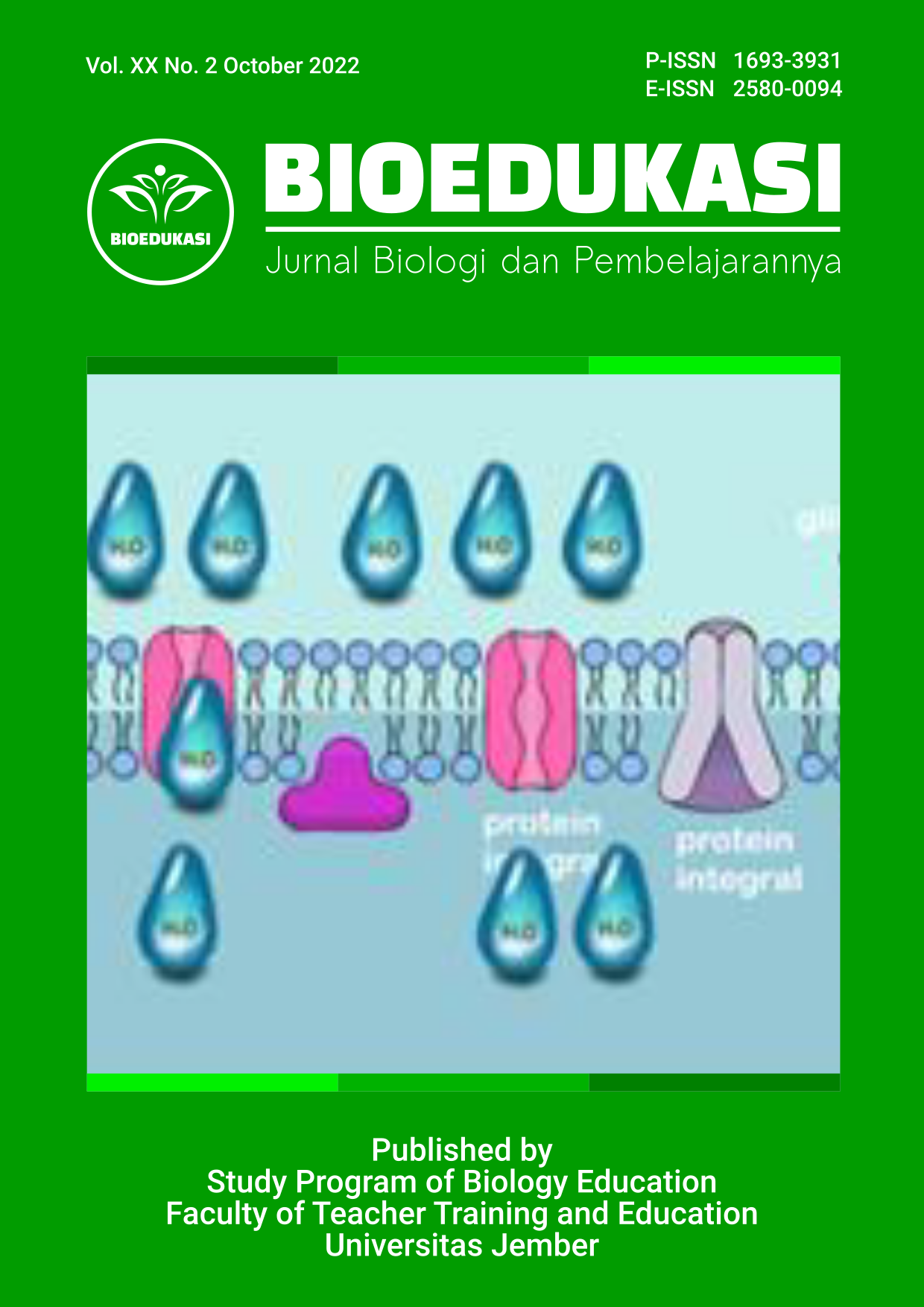E EFFECTIVENESS OF BOKASHI CHICKEN STOOL ON HYBRID CORN PRODUCTIVITY ( Zea mays L)
-
DOI:
https://doi.org/10.19184/bioedu.v20i2.29266Abstract
This study aims to determine the effectiveness of bokashi on the productivity of hybrid maize (Zea mays L). Bokashi is expected to maintain soil fertility, replace chemical fertilizers which are very expensive, and have an adverse effect on the soil. High corn productivity is useful for meeting the food needs of the community. The research was carried out in the rice fields of KepanjenVillage Gumukmas. This type of research is a true experiment using a completely randomized design (CRD), and a factorial pattern, which consists of 3 factors, namely: 1) positive control (NPK); 2) negative control; 3) bokashi 50%. Each treatment was repeated 3 times, with 10 plant samples per replication. The research data were tested using Analysis of Variant (ANOVA) v20, and continued with Duncan's test for data that had a significant effect. The results of the ANOVA analysis showed that bokashi had a significant effect on the productivity of corn plants, while the results of the follow-up test stated that the positive control treatment had the best value, and bokashi was in second place. Corn grown using bokashi has the advantage that it is more resistant to pests and insects.






